One of Singapore’s top retailers, over 60 stores island-wide Stores located in heartlands. Listed on the Mainboard of the Singapore Exchange since 2011. Conservation of resources is Sheng Siong’s key business objective. Committed to SDG goals to ensure sustainable consumption and production patterns.
Adopted 3Rs “reduce, reuse, recycle” principle in the management of their resources to create better value for their stakeholders.
CLIENT
ShengSiong
ROLE
Design – Concept sketches, wireframing, storyboarding, design prototype.Research – Semi-structured interviews, affinity mapping, competitive analysis, expert evaluation.
DURATION
14 weeks
TOOLS
Adobe XD, Figma, Miro, dovetail
TEAM
Ken, Rosanne, Stella, Hazairi, Ron, Jim
To design an intriguing and engaging experience that corrects mothers’ (aged 35-44) misperception of “ugly” fruits and vegetables in order to help them make an informed decision on their selection and empower them in responsible consumption into reducing food waste for Sheng Siong.
Both quantitative and qualitative research were conducted. The primary goal was to gain insight into the experience of a consumer when buying groceries and what is their concern. This would help to better identify important feature requirements of potential users.

Formal and Informal inquiry with both Customers and Sheng Siong Staff

Observed @ 8 Sheng Siong Outlets Applied P.O.E.M.S framework

24 survey questions
46 Respondents

Sheng Siong’s Sustainability Report 2020
NEA Report (2020)
Singapore Environment Council & Deloitte (2019)
Singapore FoodBank
Singapore News Network Media
Electrolux Ugly Food survey (2016)
During the observation we applied the POEMS Framework (People, Objects, Environments, Messages, and Services). This exercise provides a framework for deep user observation that can be useful for our onsite insights.
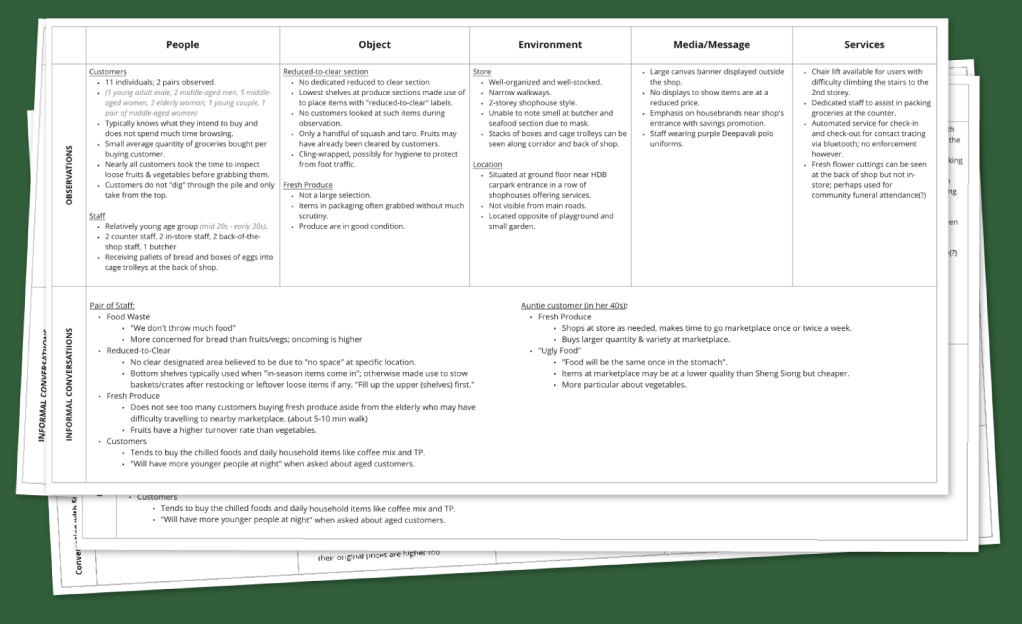
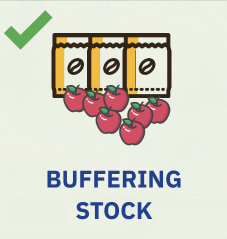
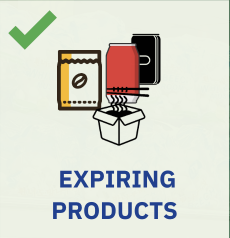
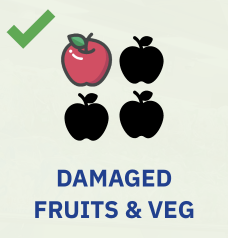
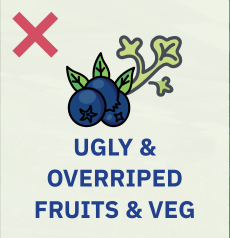
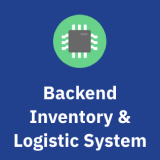


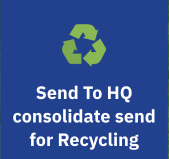
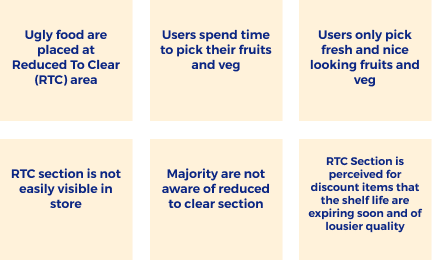
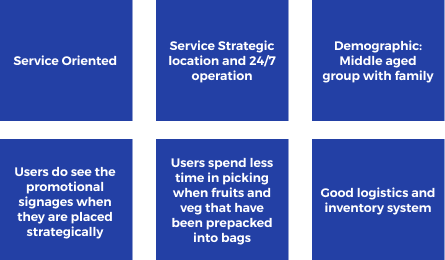

To design an intriguing and engaging experience that corrects mothers’ (aged 35-44) misperception of “ugly” fruits and vegetables in order to help them make an informed decision on their selection and empower them in responsible consumption into reducing food waste for Sheng Siong.
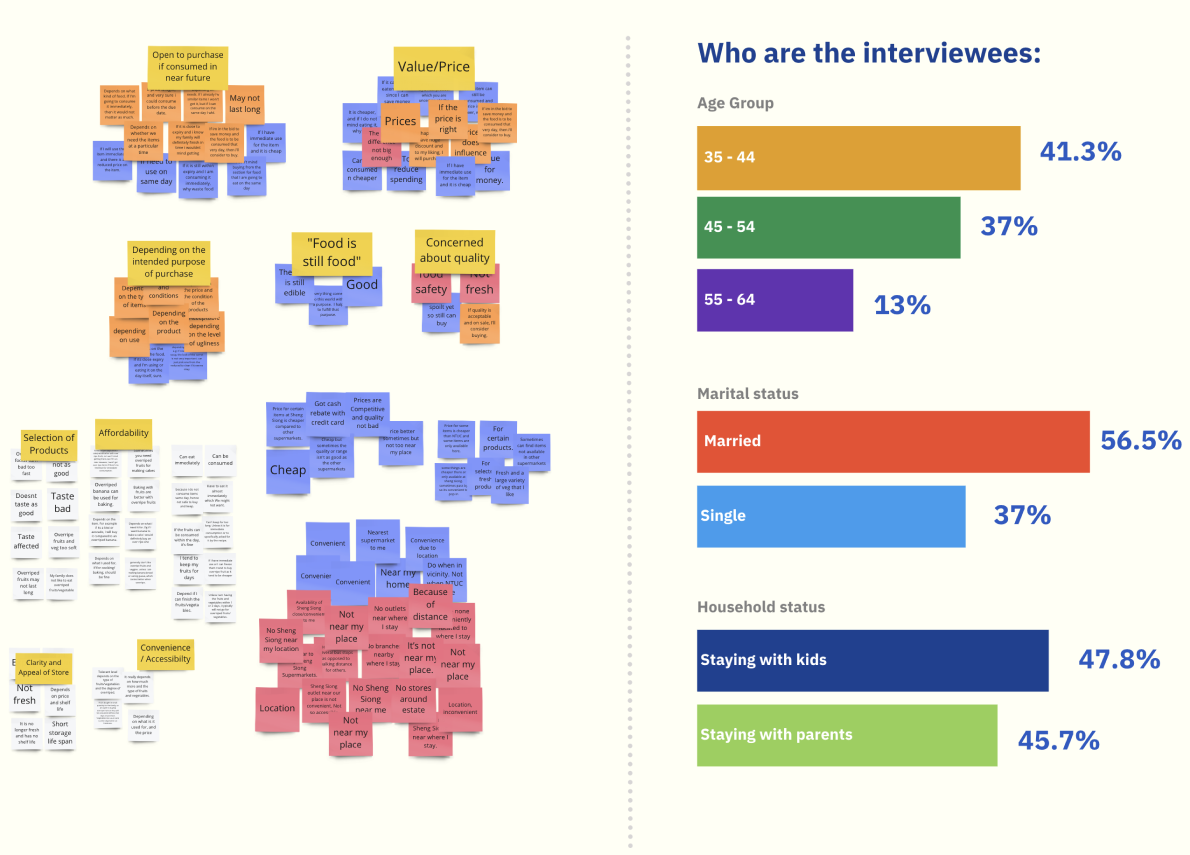
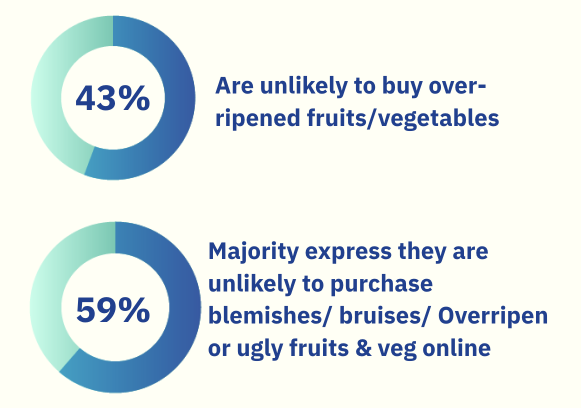
Data Resource : Online Google survey 2021


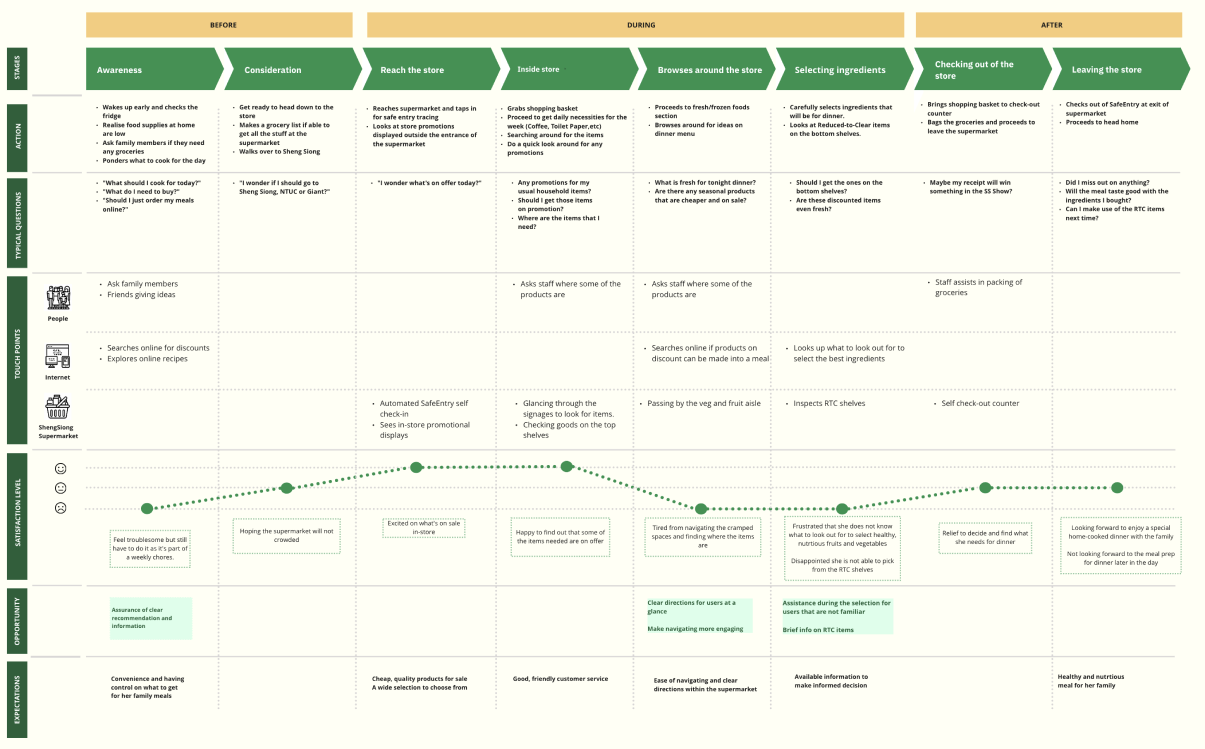
Mothers (aged 35 to 44) have the misconception that “ugly” fruits and vegetables are not as good as the perfect looking ones, leaving them behind during selection, contributing to food waste in Sheng Siong.

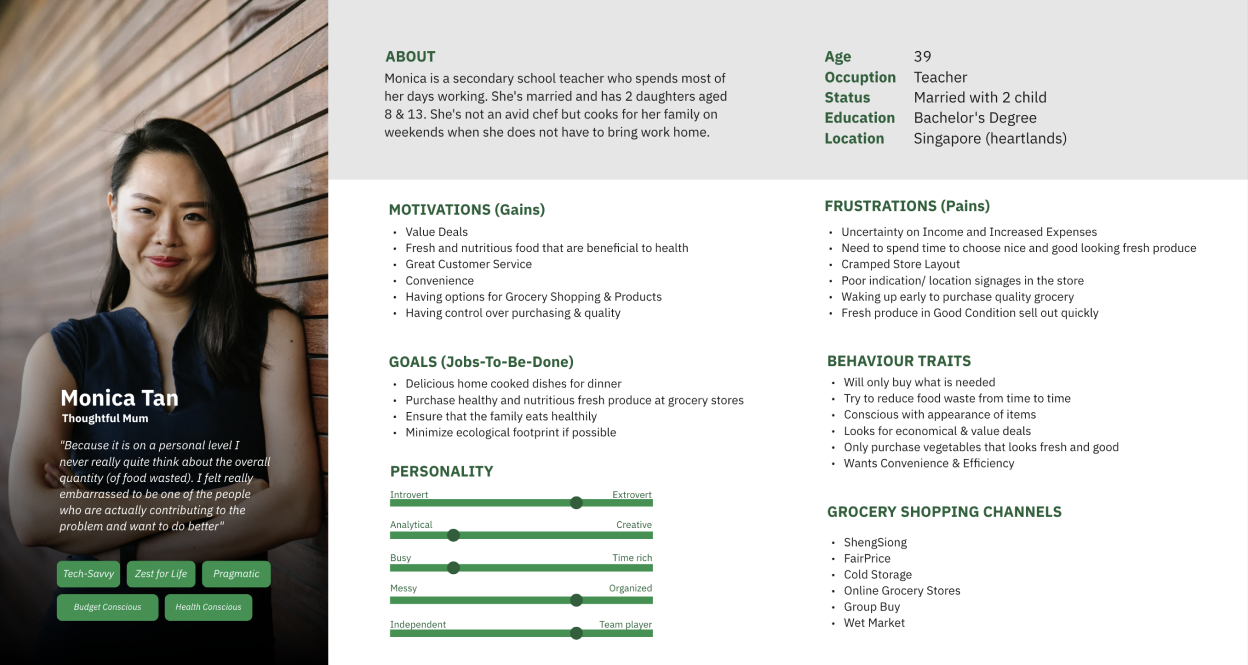
How might we design an intriguing and engaging program/campaign that corrects the misperception of “ugly” fruits and vegetables in Sheng Siong for mothers (aged 35-44) to help them make informed decision on their selection and play a part to help reduce food waste?
Teams start by aligning around the problem or challenge we want to solve. Next we re-frame any thoughts and insights into “How might we?” challenge statements. Rapid ideation is then used to allow each participant to throw out their solution ideas to the rest of the group. The best ideas can then be prioritised.
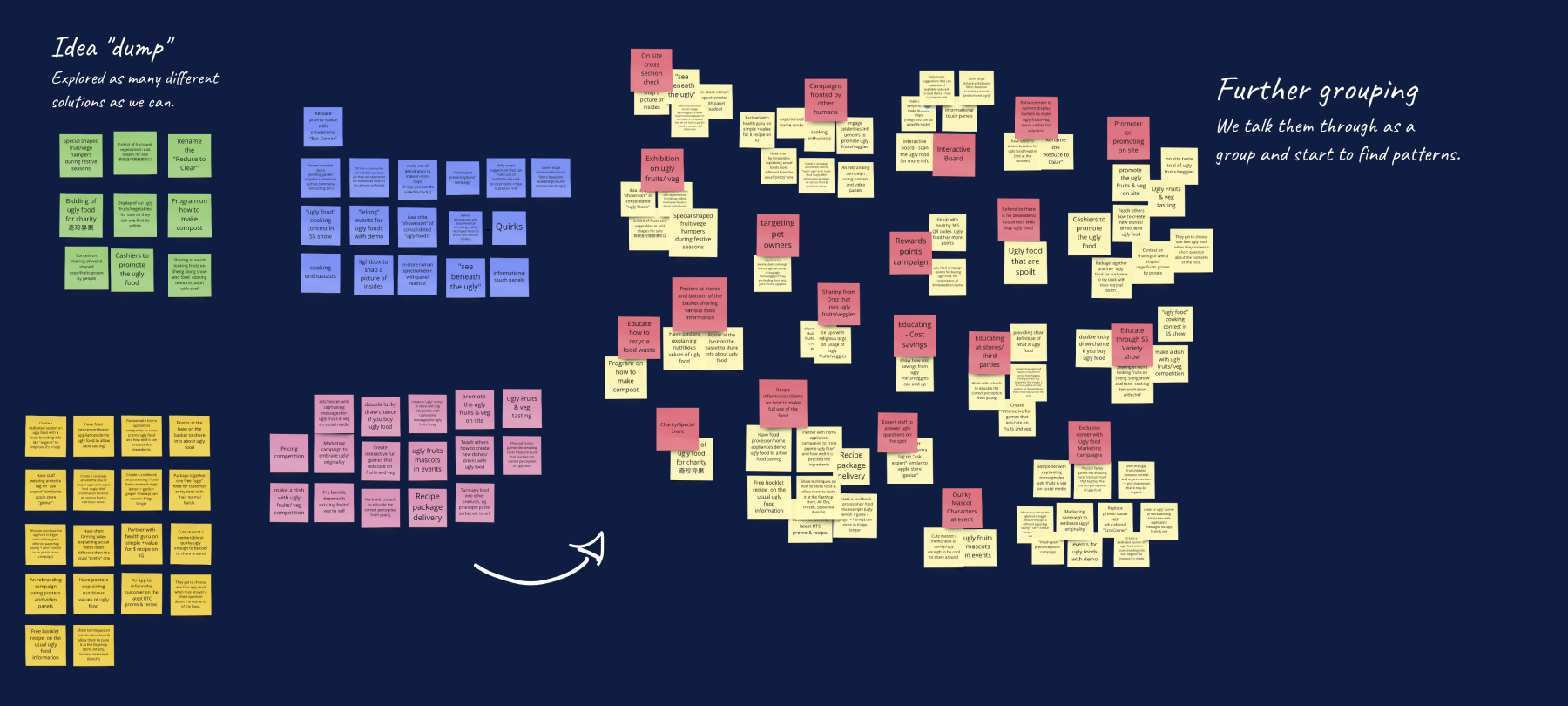
Design – Concept sketches, wireframing, storyboarding, design prototype.Research – Semi-structured interviews, affinity mapping, competitive analysis, expert evaluation.
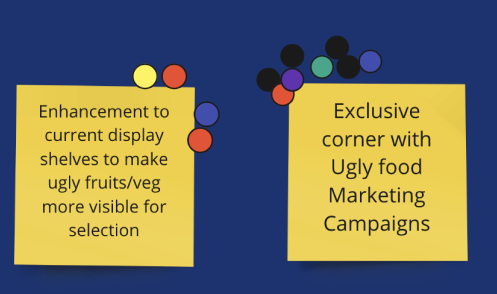
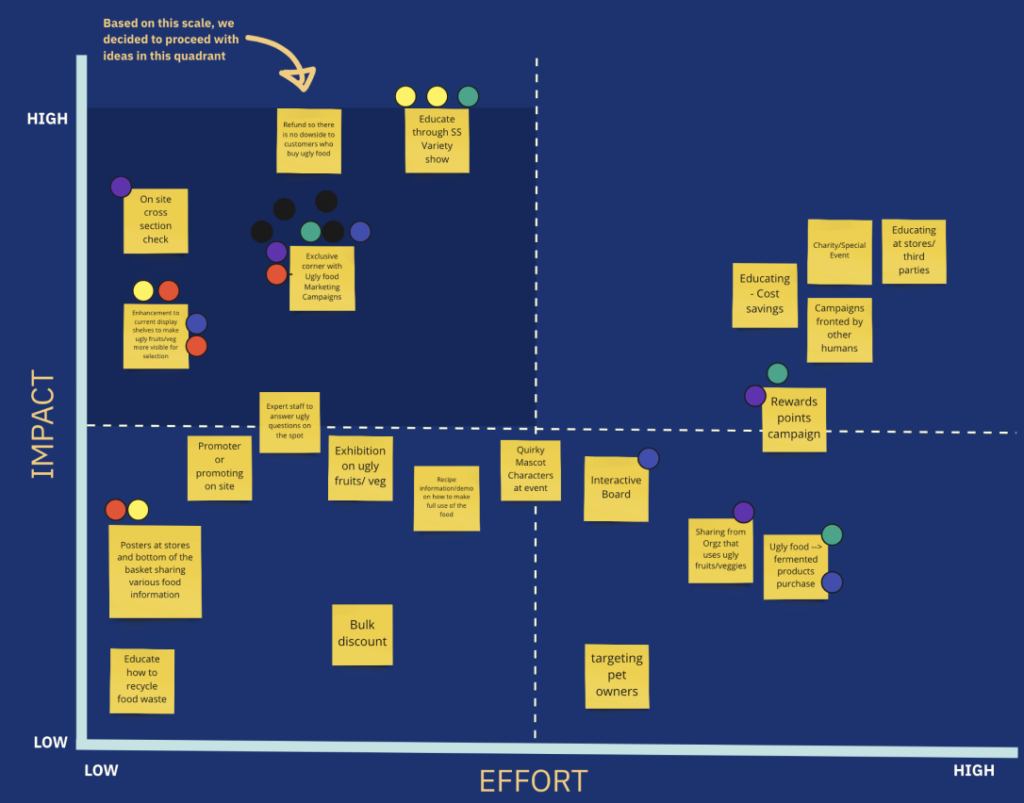
To create an exclusive branding with “Ugly” food Marketing Campaign that helps to educate customer about ugly food.
Enhancement to current display shelves to make ugly fruits/vegetable more visible for selection.
Bring to the table all the inspirations and ideas we have gathered and created, through research and discussion with users and other relevant parties. Take a single directions for now, in future can explore more iterations.
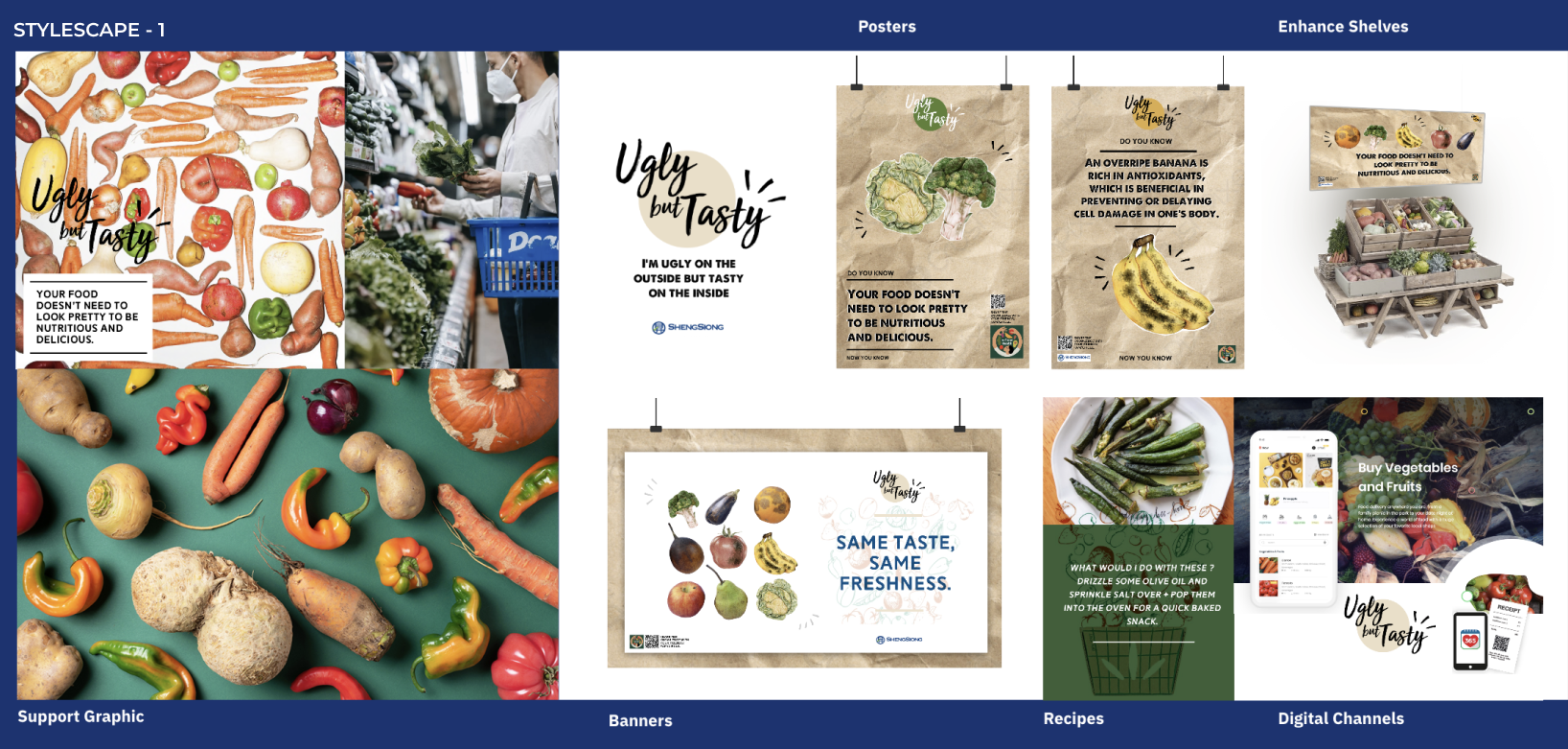
We showed our Prototype Stylescape to 3 interviewees. This included exclusive branding campaign and enhancement of display area and for the ugly food section. Through an in-depth conversation, we sought to gather feedback from users to determine if our proposed solution addressed our HMW statement.
To better break down the feedback and ideas obtained during the user testing, we utilised the User Feedback Grid to help sort the inputs received.
How might we design an intriguing and engaging program/campaign that corrects the misperception of “ugly” fruits and vegetables in Sheng Siong for mothers (aged 35-44) to help them make informed decision on their selection and play a part to help reduce food waste?



I hope you enjoyed your stay.
If there is something you wish to know, feel free to connect with me.
© 2025 All Rights Reserved.